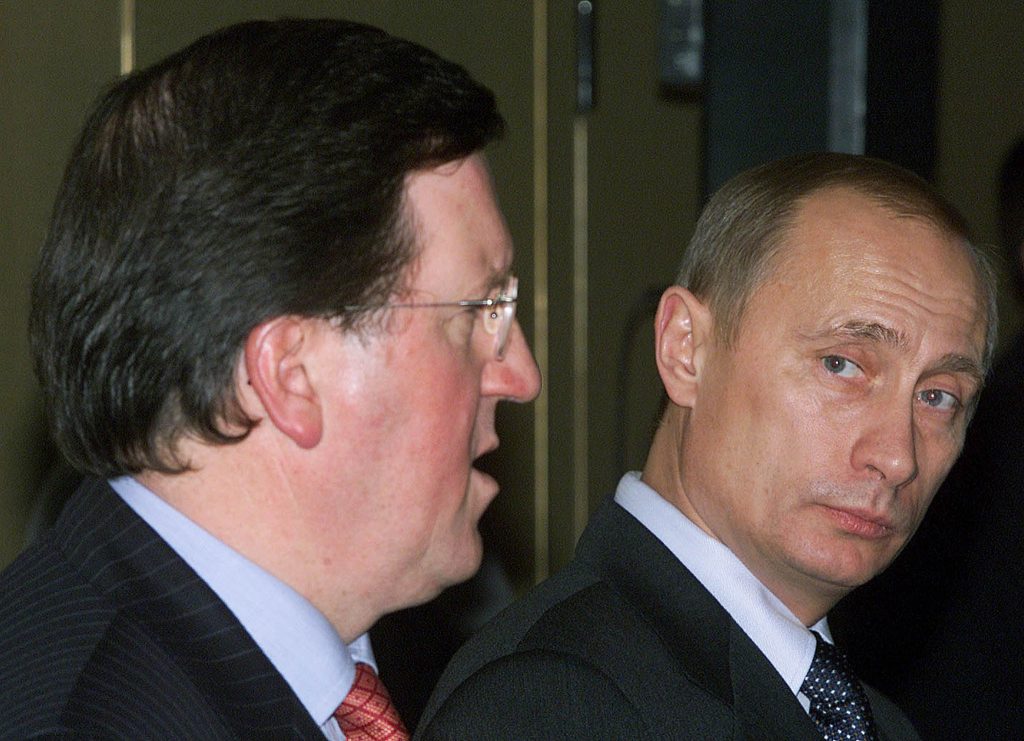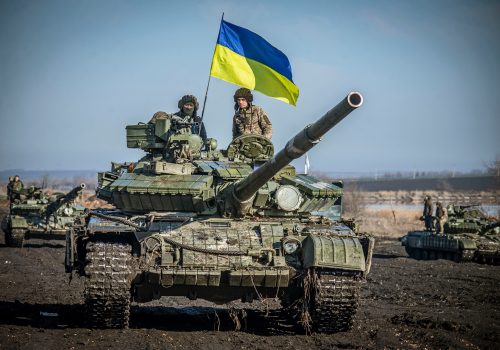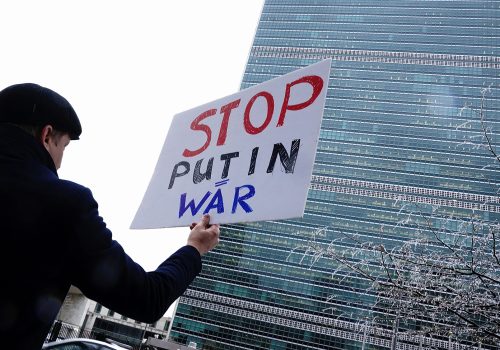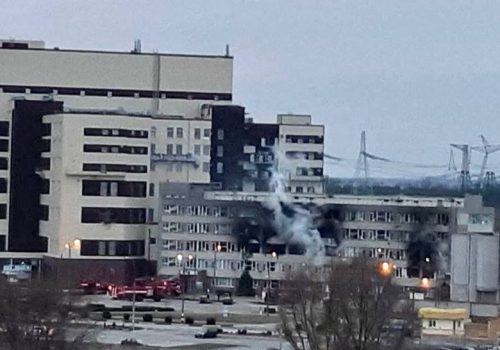This post is adapted from a speech that Lord Robertson delivered to the United Kingdom’s House of Lords on February 25.
There is an old saying: “In Russia, everything changes in twenty years; nothing changes in two hundred years.”
But maybe it gets to the heart of the recent crisis, when the unthinkable became the inevitable.
Over the last few weeks, I have been wondering, with the rest of the world, what is inside the head of the man who has, alone, ordered the violent invasion of a sovereign nation state in the year 2022. The head of the man I met nine times—in the Kremlin and Brussels, with whom I did good business, with whom we created the twenty-strong NATO Russia Council, with Russia an equal at the table.
The head of the man who personally signed accords guaranteeing the right of nations—and Ukraine specifically— “to choose the means to ensure their own security, the inviolability of borders.” The head of the man who asked me about when we were going to invite Russia to join NATO.
I ask you this: What irrational thought process has changed that man into a monster who violates the sovereignty—and the existence—of a neighboring country? What changed that man of the KGB who this [past] week publicly humiliated the head of his own Foreign Intelligence Service in the sight of a dismayed world?
The answer being widely accepted is that he is paranoid about next-door Ukraine becoming a NATO member. I disagree. I don’t think the organization I used to head is the fuel to the Vladimir Putin fire. It is just a useful demon to scare the Russian public.
His real, and well-justified, fear is of democracy. He has seen the aspiration of former communist countries to join the European Union (EU) change these countries permanently and fundamentally. The EU is the bogey.
Nations becoming democracies with a free press, free elections, the rule of law, and mixed economies are a serious challenge to the Putin model of brutal authoritarianism. In his fevered mind, if Ukraine travels in that direction as indeed it wants to, then what about the rising revolts in Belarus, Armenia, Kazakhstan, and Azerbaijan? That’s much too close to home.
This attack, this breach of international law, this breach of the UN Charter, this heavy-handed assault on a fellow Slavic nation is actually a sign of weakness, of a vulnerability in the face of the inexorable tide of democracy.
So, what do we do now? Stand absolutely firm and resolute with the Ukrainian people.
Finance and supply the resistance to the invaders. Make Ukraine the new Afghanistan for Russia.
Build our own defenses and protect our own democratic values. Imprint in the mind of Putin and his generals the inviolability of NATO’s Article 5 mutual-defense guarantee and the danger to his motherland if he ever thought of crossing that line.
And we must now mobilize the whole world against this outrage and make sure the sanctions bite savagely and affect Kremlin thinking.
Let me remind you what President Putin said in May 2002, standing beside me in Rome at the NATO Russia Summit: “Russia has always had a crucial role in world affairs. The problem for our country has been, however, that over a long period of time a situation arose in which Russia was on one side and the other side was the rest of the world… Nothing good came of that confrontation between us and the rest of the world.”
It was true then. It is even more true today.
Lord George Robertson served as secretary general of NATO from 1999 to 2004. He is an Atlantic Council International Advisory Board member.
Further reading
Mon, Feb 28, 2022
Putin has fatally underestimated Ukrainians
UkraineAlert By
Vladimir Putin made a grave miscalculation when he invaded Ukraine. The Russian ruler hoped to decapitate the Ukrainian state and install a new regime, but is now at war with the entire 40 million Ukrainian nation.
Fri, Feb 25, 2022
Not just Ukraine: Putin wants to remake the world
New Atlanticist By
We would be mistaken to hope that Putin's ambition is limited to Europe. Ultimately, it is the international liberal order and its norms that he is after.
Mon, Feb 28, 2022
Russian forces capture key Ukraine nuclear plant
New Atlanticist By
Follow along for the latest insights, analysis, and reporting from the Atlantic Council's experts as Russia steps up its military assault on Ukraine.
Image: NATO Secretary General George Robertson (L) and Russian President Vladimir Putin (R) addres a news conference after a meeting in Brussels November 11, 2002. Robertson briefed Putin on preparations for the Prague summit on November 21-22, 2002. REUTERS/Viktor Korotayev THR



